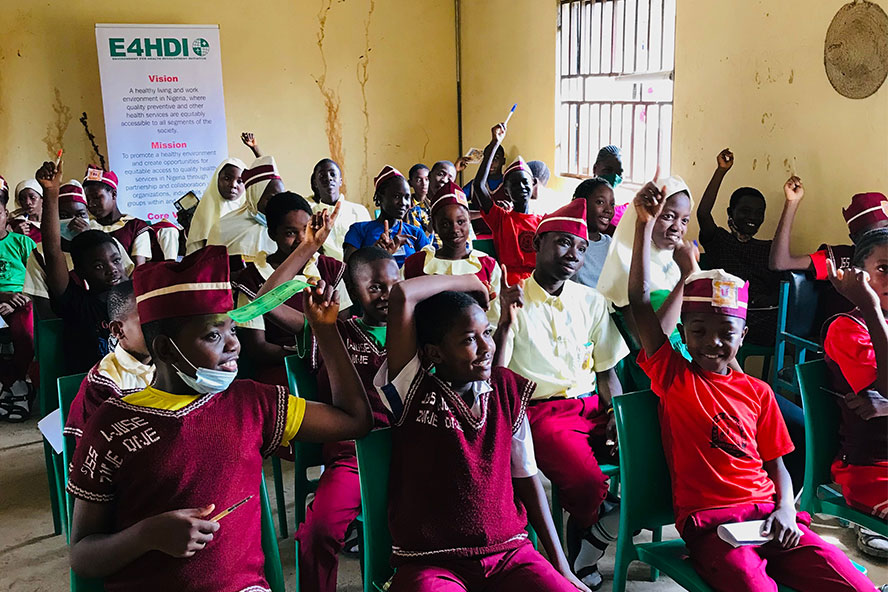The Childhood/Adolescent Obesity Prevention Programme (CHOPP) is the maiden programme of the E4HDI to address obesity in children and adolescents in the FCT due to the rising prevalence of childhood obesity globally and locally. The worldwide prevalence of obesity nearly tripled between 1975 and 2016. In 2019, an estimated 38.2 million children under the age of 5 years were either obese or overweight. In Africa, the estimated prevalence of childhood obesity and overweight was 8.5% in 2010 and it is expected to reach 12.7% in 2020 (WHO). In Nigeria, the National Bureau of Statistics (NBS) report of 2015 shows a national prevalence of 1.6% for child obesity in the country. The report states that this figure would rise if actions were not taken to prevent cases of child obesity in the country.
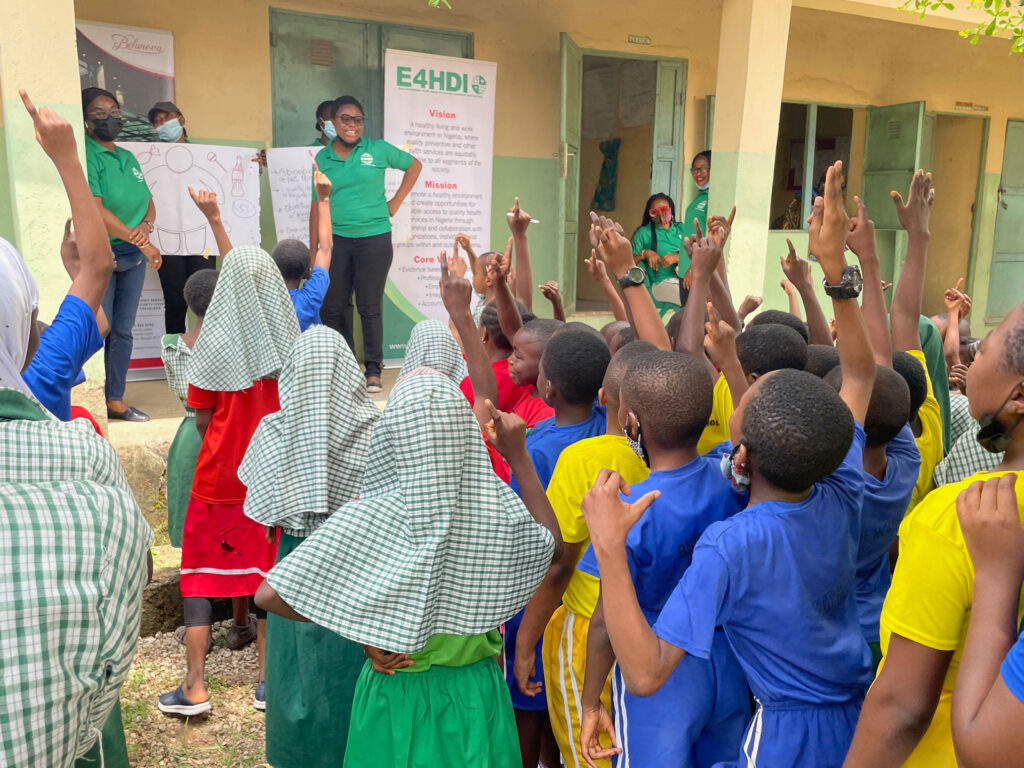
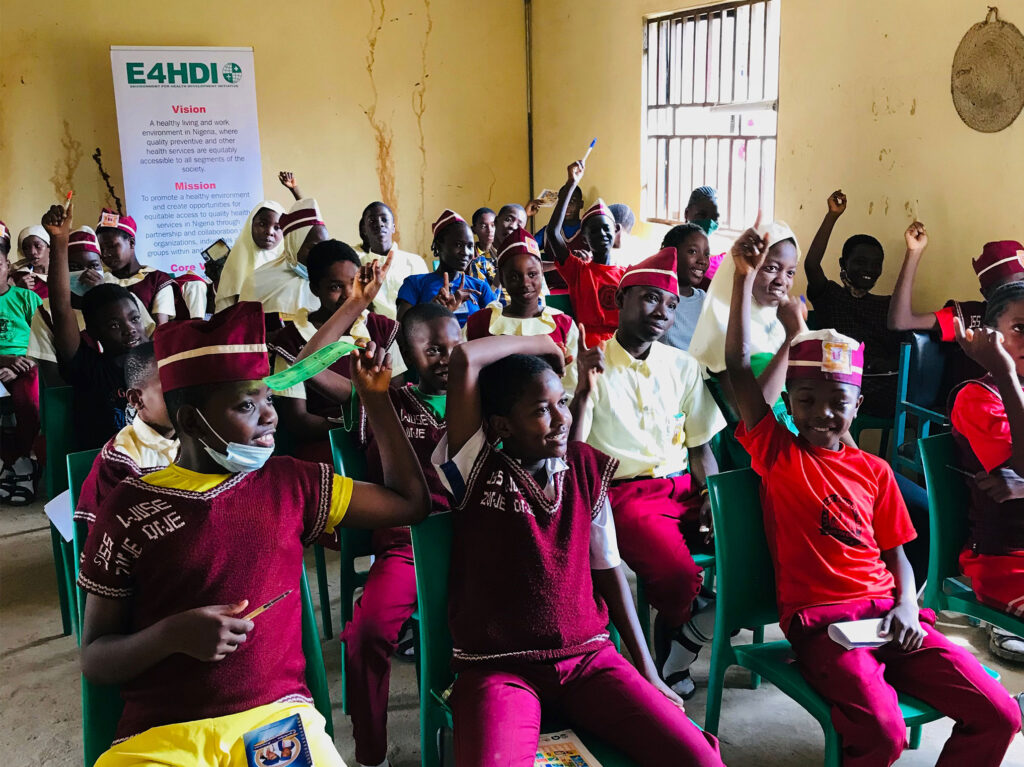
The concern about obesity in children and adolescents is that it is associated with several physical and psychological health impacts, including early-onset diabetes, arthritis, hypertension and heart diseases. It creates an environment for stigmatization, bullying and mental health destabilization in school, which could result in dire consequences. Obesity is difficult to treat but amenable to prevention with a high return on investment.
CHOPP was organised by E4HDI in collaboration with Belanova Apartments and Suites, Maitama, in selected primary and Junior secondary schools in Abuja FCT. It sought to raise awareness on obesity and promote healthy nutrition and physical activities among the school children, and teachers to engender healthier habits and reduce obesity. An important focus of the programme was to assess the BMI of the school children and identify those that are overweight/obese for tailored recommendations to enable them to return to their ideal weight.
The programme was implemented in four (4) schools in Abuja Municipal Area Council, including Junior Secondary School (JSS) Zone 1, LEA Primary School 5 Wuse Zone 1, LEA Primary School Area 1, and Junior Secondary School (JSS) Area 1 FCT, Abuja.
During the flag-off held at Junior Secondary School (JSS) Zone 1, Dr Nnenna Ezeigwe, the Chief Executive Officer E4HDI, stated that E4HDI is a new NGO that works to improve the health of the citizens and reduce the inequality among different segments of society in terms of accessing preventive and other health services. She briefly introduced the programme stating that the Childhood/Adolescent Obesity Prevention Programme (CHOPP) is a Corporate Social Responsibility initiative of Belanova Apartments and Suites being implemented by E4HDI.
Dr. Ezeigwe informed that E4HDI followed the rigorous due process of obtaining all the necessary approvals from the FCT Universal Basic Education Board (UBEB) and expressed satisfaction that the UBEB and the selected schools have bought into the vision of the organisation and been very supportive. She congratulated the school for being the first beneficiary of the debut project of the organization and pointed out that it is a historic moment in the life of E4HDI, which will remain indelible in its corporate memory. She reiterated the need for the students to share the information they will be getting with others at home, work, and other places for a multiplier effect.
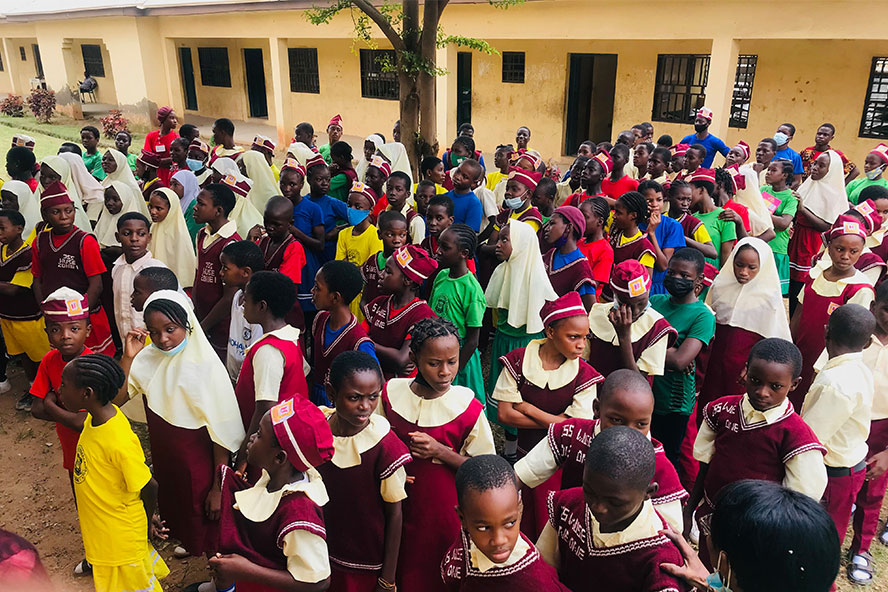
Mr Valentine John, Operations Manager, Belanova Apartments and Suites gave his remarks where he stated that the programme is one of the hotel’s innovative Corporate Social Responsibility initiatives to impact positively on the lives of their host community. He went further to talk about the hotel stating that Belanova Apartments and Suites is a notable hospitality business organization in Nigeria located in Maitama Abuja. In closing, he expressed deep appreciation to E4HDI for facilitating the implementation of the programme. He acknowledged the media, FCT Basic Education Board and the staff and students of JSS Wuse Zone 1 for their cooperation and participation.
Over a period of 2 weeks, 670 school children (344 females and 326 males) were reached with information on healthy nutrition and physical activities, and they had increased knowledge on obesity prevention. School children identified to be overweight/obese were given recommendations on how to improve their health.
The programme which was one of its kind in the participating schools, had the attention of the school children and their teachers as they were willing to participate and have their Body Mass Index (BMI) checked. There were excitements in the air as the children were captivated by the messages and happily participated in the physical activities led by the Programme Manager, Mrs. Janet Ewa Abutu. The engagement was very interactive, and children asked several questions, including information bothering on unrelated health challenges faced by some members of their families.
The teachers were not left out, they had their BMI checked and were counselled on healthy food nutrition and physical activities they can engage in to stay active and healthy.
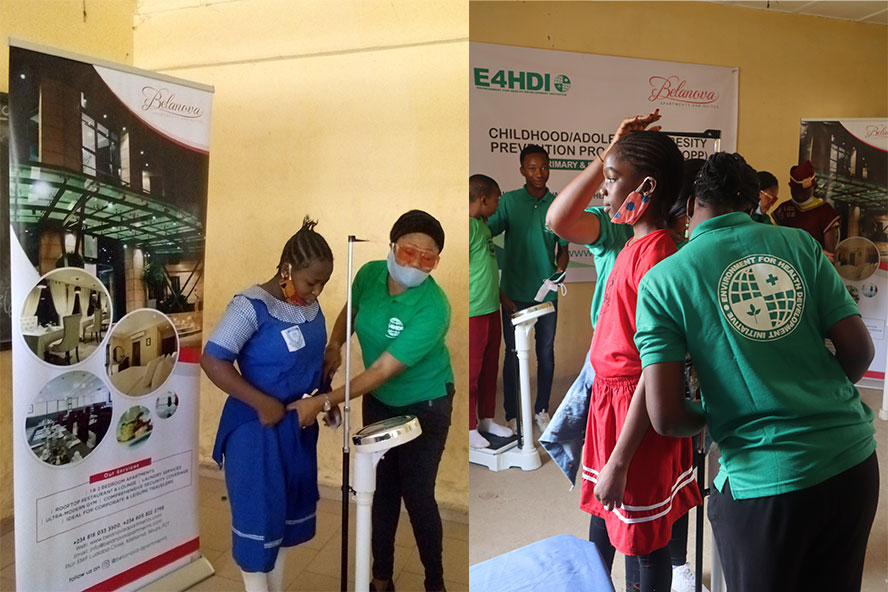
Overall, about 12% of the school children assessed were overweight and 3% were obese across the four schools. However, the good news about childhood obesity is that we know what to do to reverse it. Recommendations were sent to parents and guardians to help their children/wards maintain a healthy weight and perhaps avoid future diseases associated with childhood obesity. Some of the recommendations for the children included:
- At least 60 minutes of exercise daily
- More engagement in house chores
- Reduce food portions
- Avoid sugary and fatty foods
- Eat more vegetables and fruits
- Check weight regularly
- Limit screen time such as TV, video games, tablets, phones, and computers to less than two hours a day.
This might sound a bit of a cliche, but it’s true nonetheless – prevention is better than cure. There is a need for continuous enlightenment of school children and their parents/guardians on the dangers of childhood/adolescent obesity and the messages should emphasize health and health behaviours, rather than body weight. Government policies are also important in curtailing this menace by possibly regulating the food and drinks industry, promoting healthy school initiatives, physical activity policy, nutritional policy, etc.
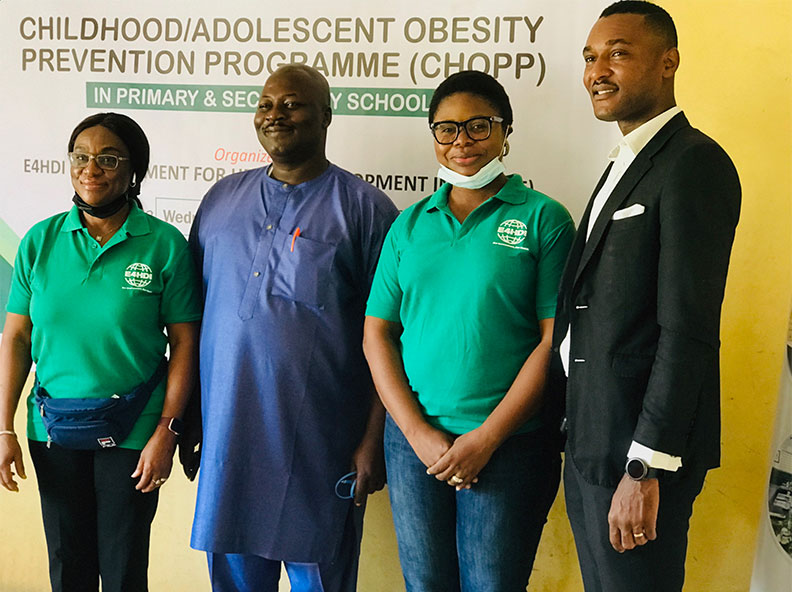
Feedbacks from students and other individuals were very encouraging. Some of these include:
- “I’m happy to be part of the children who benefited from this programme, now that I know what obesity is, I will share the knowledge with my friends at home” – a student from JSS Zone 1
- “Congratulations for a successful outing. The programme is very useful and the acronym CHOPP very appropriate in Nigeria parlance. Should I add “Chop less to avoid obesity” or better to say “Chop well to be well” – a friend of the organization
- “I love that project…. tackling such an important public health issue” – a public health expert
- “Great outing! Congratulations!” – a trustee of E4HDI
- “This is definitely a good place to invest. UNICEF would be happy to partner with you” – a journalist at the flag of event

